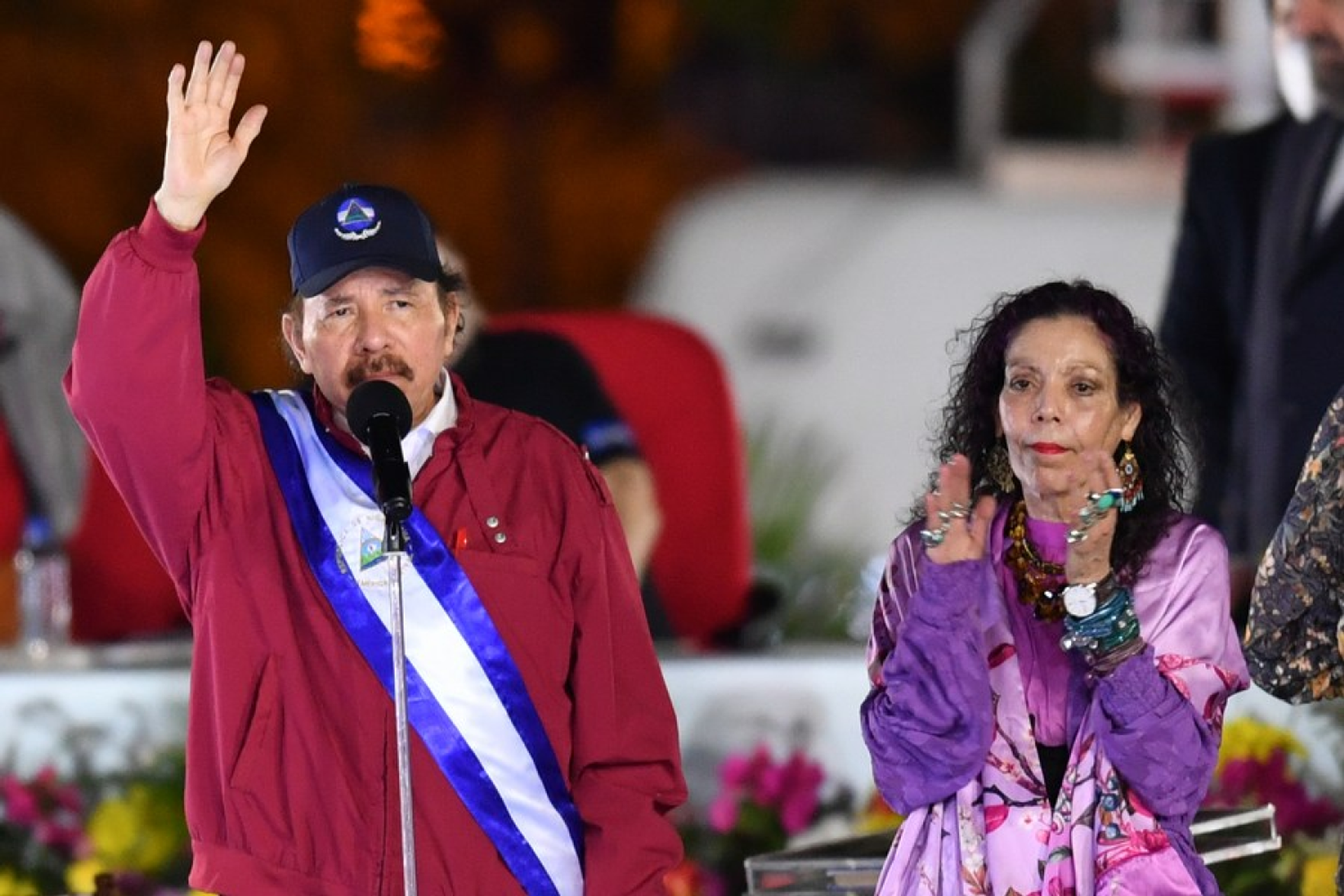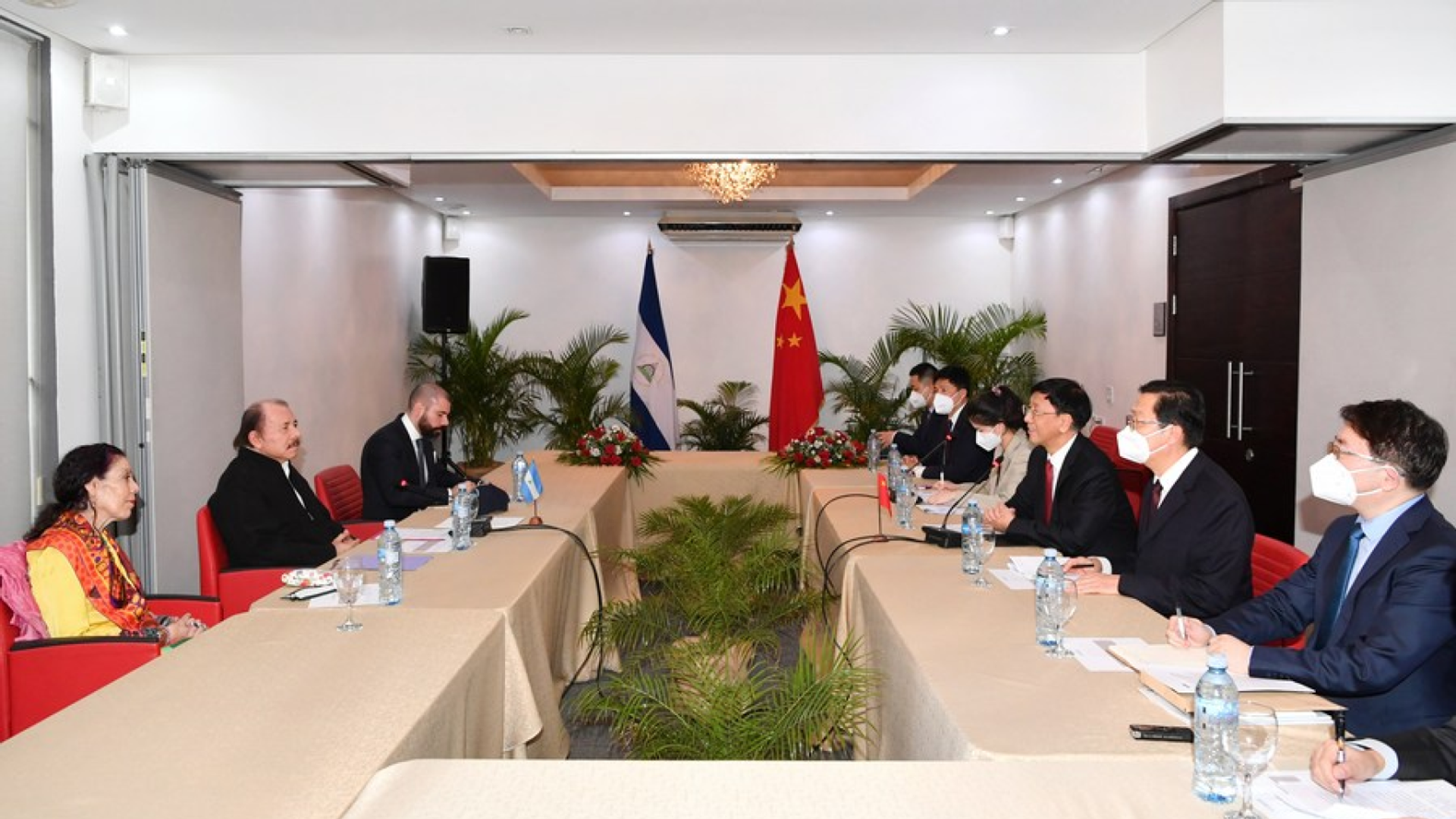Nicaragua, China Sign Treaties, Including BRI Memorandum, After Managua Drops Taiwan Relations
Subscribe
A month after Nicaragua switched its recognition of the Chinese government from Taipei to Beijing, the two countries have signed several key agreements underpinning their new political relationship, including Managua’s support of the Belt and Road Initiative.
A slew of treaties were signed on Monday by Nicaraguan and Chinese representatives in Managua on Monday, ahead of Nicaraguan President Daniel Ortega’s inauguration for a fourth term as president.
The documents included a political consultation agreement, a treaty on bilateral cooperation and diplomacy, a memorandum of understanding on cooperation under the framework of the Belt and Road Initiative and the 21st Century Maritime Cooperation, and the mutual waiver of visas for Chinese and Nicaraguan citizens carrying diplomatic passports or traveling for official business.
"We attach great importance to strengthening relations with brother countries. Therefore, we welcome the Ortega administration’s decision to toughen cooperation with our nation,” Cao Jianming, the vice-president of the Standing Committee at the Chinese National People's Assembly (NPA), said at the ceremony, according to TeleSUR.
"In this meeting, we ratify the principles of socialism from the bases of Marxism-Leninism and the thinking of the leader Mao Zedong and our president Xi Jinping," Cao assured.
Ortega told Cao that Nicaragua has closely followed the Communist Party of China’s achievements over the past century, including building a moderately prosperous society in all respects, eradicating absolute poverty, and successfully convening the sixth plenary session of the 19th CPC Central Committee, according to Xinhua News Agency.
Ortega’s democratic socialist Sandinista National Liberation Front (FSLN) has long pursued social programs in the impoverished Central American country despite extensive resistance by the United States, including funding a ten-year proxy war against Ortega’s government in the 1980s that eventually forced him from power. However, he was reelected in 2006 and has been reelected three times since, the most recent of which was in November 2021.

Nicaraguan President Daniel Ortega (L) and Vice President Rosario Murillo attend the swearing-in ceremony for a new presidential term in Managua, Nicaragua, Jan. 10, 2022.
The US rejected the results of the November vote, accusing Ortega of eliminating the opposition by arresting several candidates who had played key roles in fomenting violent riots beginning in 2018, which the US funded and backed, hailing them as pro-democracy protests. On Monday, the Biden administration rolled out punishing new sanctions on Nicaragua, targeting central figures in Ortega’s administration, dozens of mayors and lower officials, and the country’s state-owned gold and petroleum mining industries.
Last month, Ortega’s government began to turn further away from Washington, pulling out of the US-dominated Organization of American States and dropping its relations with Taiwan, a self-governing island that China regards as a province in rebellion.
On January 1, China opened its new embassy in Managua and invited Nicaragua to “take an active part” and join the Belt and Road Initiative “as soon as possible.” The massive infrastructure megaproject is helping finance construction of roads, railways, ports, highways, and other civil utilities around the globe.
Pan Deng, executive director of the Latin American and Caribbean Region Law Center of China University of Political Science and Law, told the Global Times that many countries that were formerly European colonies have suffered continued underdevelopment and rely on the export of primary products to the industrialized nations, often their former colonial rulers.
“Dominated by the US, these countries have been forced to stay in the lowest end of the industrial chain,” the Global Times wrote, summarizing Pan’s points. “Their urgent needs are ridding themselves of their current position in the industrial chain designated by the US hegemony, breaking bottlenecks and improving infrastructure construction, and seeking potential cooperation in fields like carbon credits.”
Although Nicaragua is a former Spanish colony, it was occupied by the United States from 1912 until 1933 to defend US interests. The final stage of the occupation was resisted by peasants led by Augusto Sandino, after whom Ortega’s Sandinista Party took its name. After the US left, the corrupt Somoza family ruled Nicaragua on behalf of Washington for 50 years until being overthrown by the Sandinistas in 1979.
However, after Ortega was forced out of office in 1990 by a US-backed insurgency, a new era of US-directed neoliberalism created special export zones for shipping duty-free goods to the US. It created free trade zones in which up to one-sixth of Nicaragua’s formal sector workforce is employed by local contractors who sell their manufactured goods to US corporate buyers like Wal-Mart, VF Jeans, Levi Strauss, Tommy Hilfiger, Nike and the Gap.
Roughly 60% of Nicaragua’s exports go to the United States, most of which are apparel, rolled tobacco, and produce such as raw sugar and coffee, according to data collected by the OEC.
At the start of the new year, China expanded its BRI relations with several countries in a similar situation, including Morocco, a former French client state, and Eritrea, a former Italian colony that was ruled by Ethiopia for decades before winning independence in 1991.

